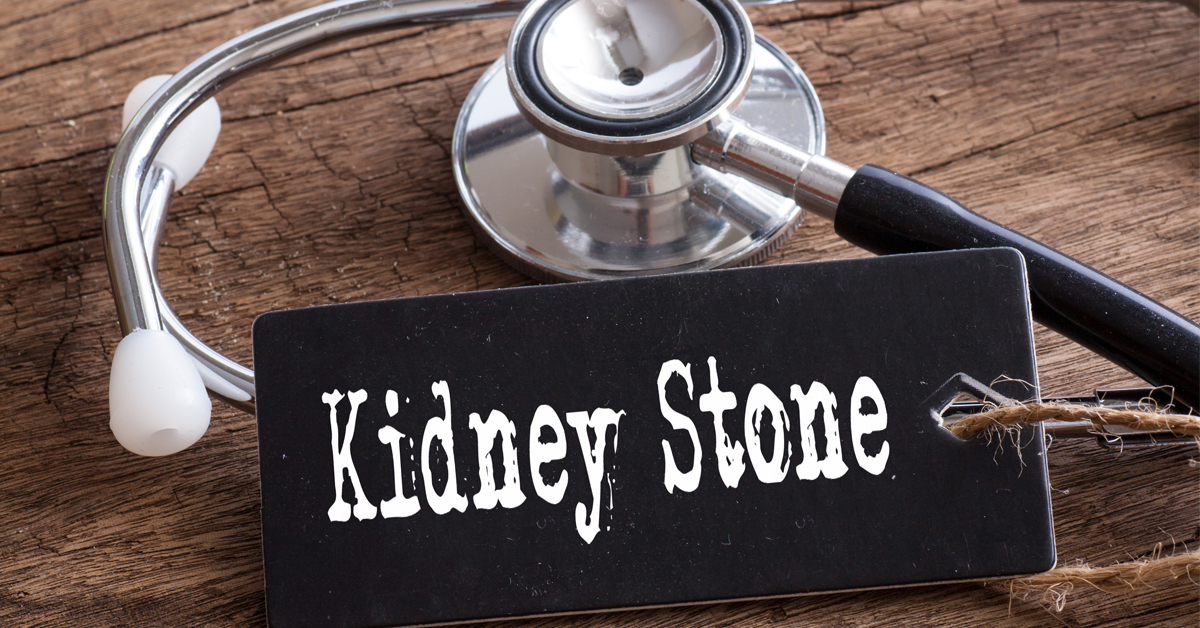Kidney stones can be very painful. The emergency room treats half a million men and women each year for kidney stones. While sometimes symptoms of kidney stones may come suddenly, some may help you know when to seek care before it becomes an emergency.
What are Kidney Stones?
The urinary system contains the kidneys, the ureters, the bladder, and the urethra. When the urinary system works properly, the kidneys remove waste from the blood and create urine. The urine travels down to the bladder through the ureters, then exits the body through the urethra.
Urine naturally contains tiny crystals of minerals and salts such as calcium, uric acid, and oxalate. People with kidney stones have too many of these salts and minerals, and as a result, they clump together, creating hard stones. Kidney stones can form anywhere along the urinary system and vary in size.
Symptoms of Kidney Stones
The early signs of a kidney stone can be easy to miss or confuse with other illnesses or conditions. The symptoms you experience may vary according to your age or gender. Men can experience kidney stone pain in the abdomen or groin and often experience nausea and vomiting.
On the other hand, women tend to experience pain in the vulva, vaginal discharge, or menstrual-like pain.
Some other common symptoms may include:
Back, side, or abdominal pain: Many people who have experienced kidney stones say the pain is like labor pain, but the pain intensity and location can vary depending on the location and size of the stone.
Pain with urinating: Pain with urinating is a common symptom of kidney stones and is also a common symptom of urinary tract infections. If pain with urination is the only symptom you are experiencing, it can often be mistaken for a urinary tract infection.
Blood in the urine: Kidney stones can irritate the lining of your ureters, bladder, and urethra, causing obvious or microscopic amounts of blood in the urine.
Foul-smelling urine: Infection within the urinary system can often be seen with kidney stones, especially if the stone creates a blockage. Foul-smelling, cloudy, or discolored urine can be a sign of infection.
Urinary retention: Urinary retention or the inability to fully empty the bladder can occur with kidney stones. If you cannot empty your bladder, you should speak to your doctor immediately.
Nausea or vomiting: The urinary and gastrointestinal systems share nerve connections. Kidney stones can trigger the nerve pathways of the stomach, leading to nausea and vomiting.
Fever or Chills: Fever and chills can be a sign of infection. If you have a fever or feel unwell, contact your doctor.
Who is More Likely to Develop Kidney Stones?
Both men and women can develop kidney stones, and people who have had kidney stones in the past are, unfortunately, most likely to have them again.
Other risk factors for developing kidney stones include:
- Dehydration
- Obesity
- Diets high in salt, protein, or sugar
- Certain medications like diuretics, calcium-based antacids, and some anti-seizure medications
- Excessive use of laxatives
- Inflammatory bowel disease or chronic diarrhea
- Gout
How Are Kidney Stones Treated?
The treatment for kidney stones can vary depending on the size of the stone and the location. Small stones can pass on their own through the urine with the help of lots of fluids and pain medication. Larger stones that cannot pass on their own may require a procedure performed by your doctor.
A minimally invasive procedure called extracorporeal shockwave lithotripsy (ESWL) is commonly used to treat larger stones. Shockwaves are aimed at the stones, which breaks them into smaller pieces that pass more easily.
When to See Your Doctor
Kidney stones can be painful, but the good news is that they do not cause permanent damage when treated early. If you have symptoms of kidney stones or risk factors for developing them, see your doctor.
Don’t delay care for kidney stones any longer – schedule an appointment today!

